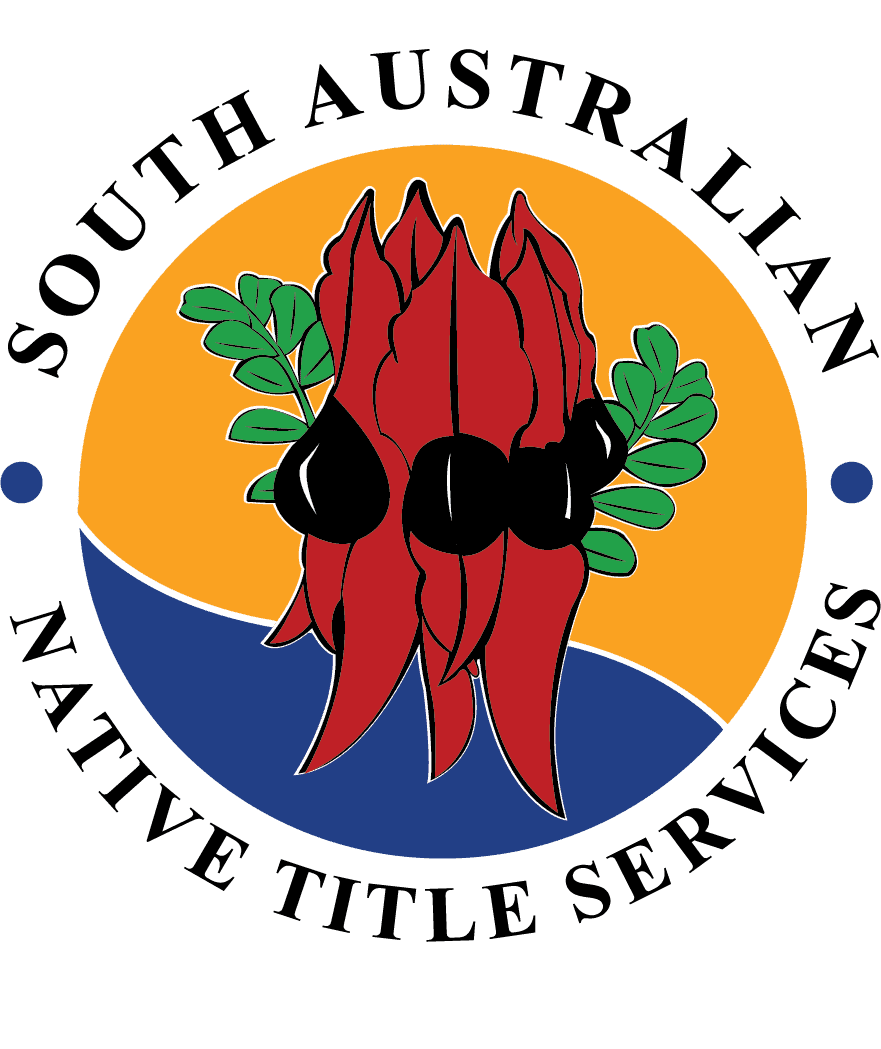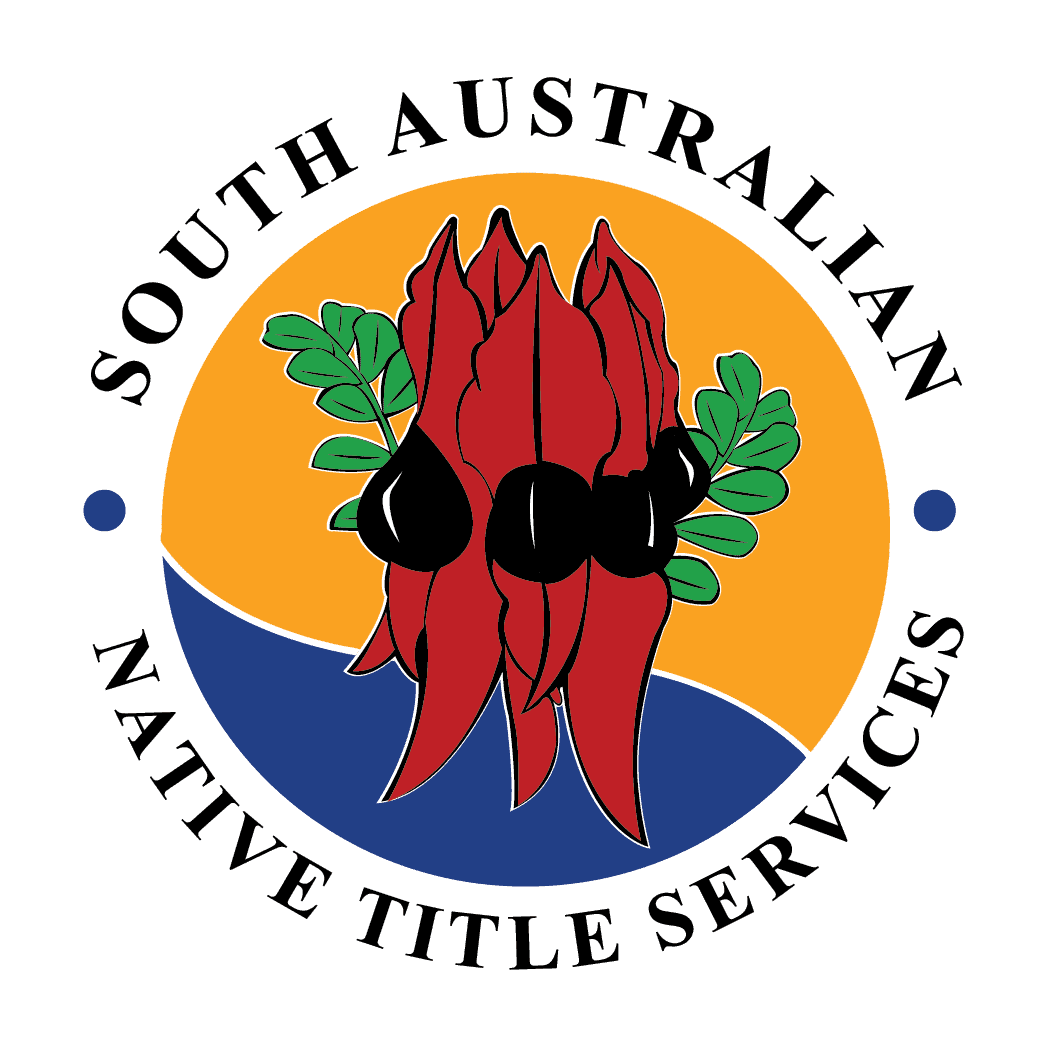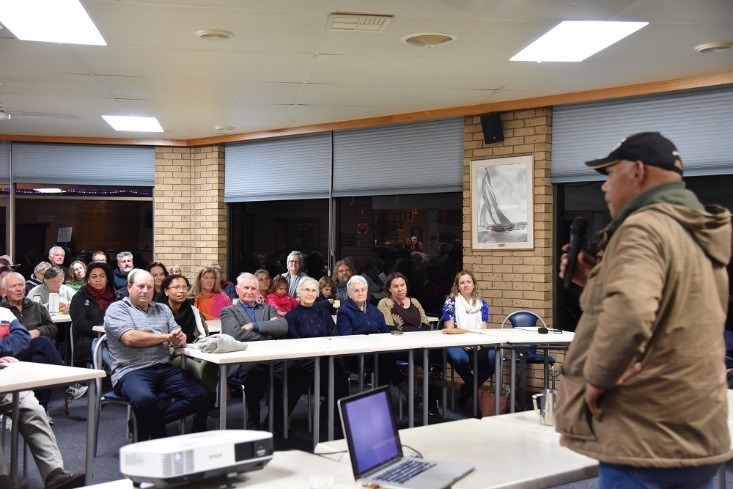A meeting at the Coffin Bay Yacht Club during Reconciliation Week saw around one hundred Coffin Bay residents meet with and learn about the original inhabitants of the area.
The Nauo History meeting was initiated by Coffin Bay Brian Witty, Karmen Podoresky and friends, after the message “does anyone know anything about Aboriginal people in Coffin Bay?” appeared on the Coffin Bay Community Notice Board.
“The silence was deafening” says Mr Witty.
The meeting was attended by Nauo elders Brenton Weetra, Pauline Branson and Jody Miller, along with other members of their family and community. They answered a range of questions from the audience including about Nauo connection with country, traditional cultural practices, language and the influence of Aboriginal words on names of places around the area.
Mr Weetra spoke about why the area is special to Nauo people.
“Coffin Bay is special to us because of the stories and the Dreaming and all our sacred sites” he said.
“It’s special for us to bring our kids here too and share the culture and the Law and the bush tucker and the Ceremony, the dance you got to dance before you come onto country” he said.
Anthropologists Dr Belinda Liebelt and Dr Scott Cane also shared some of their knowledge about Aboriginal people’s culture and religion across Australia and the links to Nauo people.
“Laws and customs are embedded in what people generally refer to as the Dreaming or ‘song lines’” Dr Cane explained.
“If I ask an Aboriginal person what their song is, then I will know where they speak for, who they speak for and where their spirits will go when they die. That is their law embedded in country.
“These song lines extend across the whole of Australia.Rituals link people to that and the Nauo people are a part of that” he told the meeting.
The Nauo people are in the final stages of their native title claims over the Lower-Eyre Peninsula, including the area around Coffin Bay.Dr Scott Cane spoke about the concept of native title from a non-legal perspective at the meeting.
“What it says is that if Aboriginal people continue to practice the laws that they practised before white people came, then the Australian law should recognise this Aboriginal law”.
“It’s important to understand that freehold title extinguishes native title, it’s not about claiming land rights as such, it’s about recognising people’s rights to practice their culture and tradition” he said.
Dr Liebelt and Dr Cane have been preparing a report on Nauo history and culture for the Federal Court to consider the Nauo People’s claim for native title.
Dr Liebelt told the meeting that Nauo history was recordedby speaking to Nauo people and local residents and by examining the accounts of early explorers and pioneers, such as those of Matthew Flinders and Edward John Eyre.
Other sources were Nauo history was recorded included archival newspapers, government and police documents, missionary reports such as those by Clamor Schürmann who worked as a missionary in the 1840s at Port Lincoln and research by early anthropologists like Ronald Berndt and Norman Tindale.
“Knowing about Aboriginal history actually for me, it makes me feel like I know more about Australia as a whole” Dr Liebelt said.
Member for Flinders Mr Peter Treloar attended the meeting and later reported on what had happened to State Parliament
He pointed out that “Don’t keep history a mystery: Learn. Share. Grow’ was the theme this National Reconciliation Week.
That is history that is “hidden just beneath the surface, ready and waiting to be uncovered’ he said.
“Across Eyre Peninsula we are familiar with many people, including the Wirangu, who occupy the Far West Coast; the Kokatha, who occupied the Gawler Ranges; the Barngarla people, who inhabited EP proper… very little is known about the Nauo people” Mr Treloar told Parliament.
Nauo spokesperson Jody Miller said that the meeting was positive and an eye opener for many people
“It’s a very welcome development” Mr Miller said.
“We think it can only be positive that we have more connection in the community.More understanding.There might also be other ideas, like signage that recognises Nauo culture and other opportunities for tourism in the area” he said
Mr Witty said that he hoped the meeting was just the start of a longer process and stronger relationship.
“We hope that this is the beginning of an era of deeper knowledge, harmony and respect acknowledging Nauo history and culture.
“We hope that in the not too distant future Coffin Bay residents and visitors alike will gain an appreciation of our shared history and legacy” Mr Witty said.
By Lucy Kingston
SANTS acknowledges that the land on which our office is based is the traditional lands for the Kaurna people and we respect their spiritual and cultural relationship with their country.



 Protected by Patchstack
Protected by Patchstack